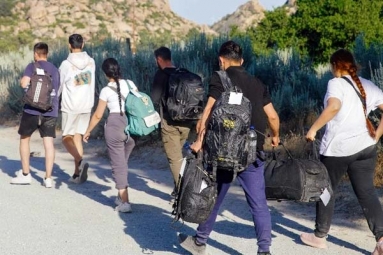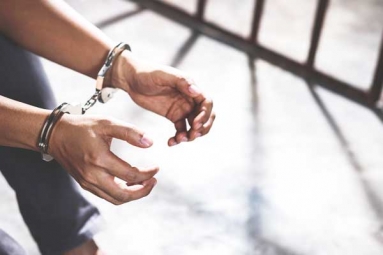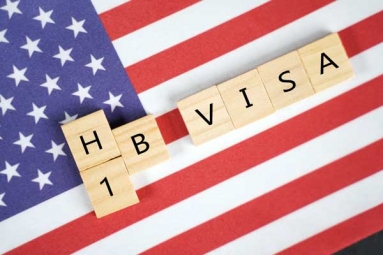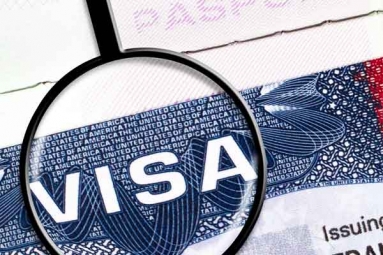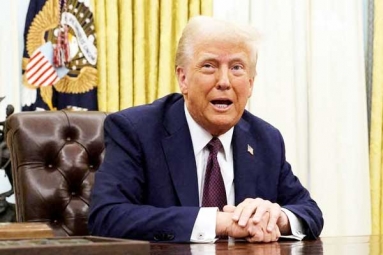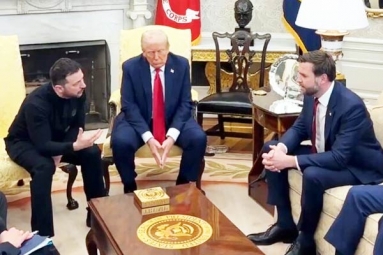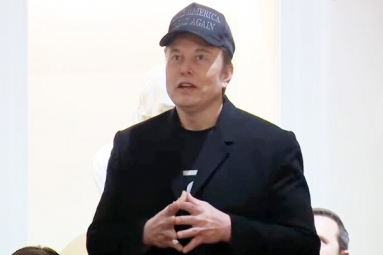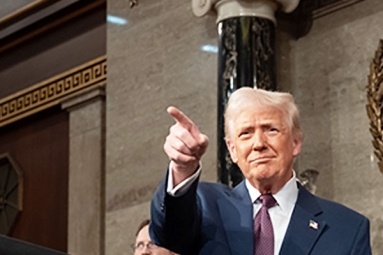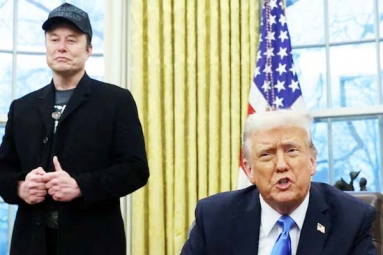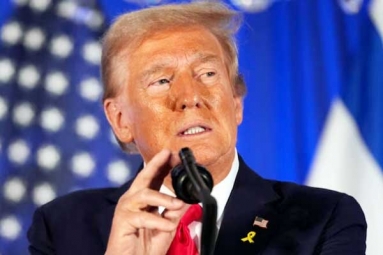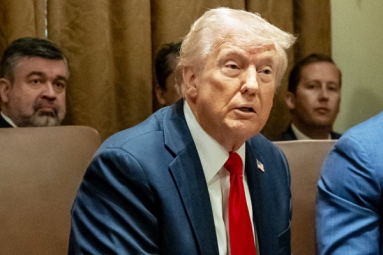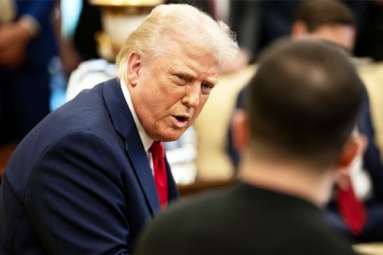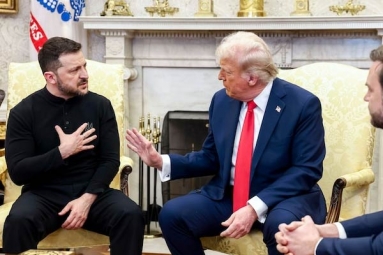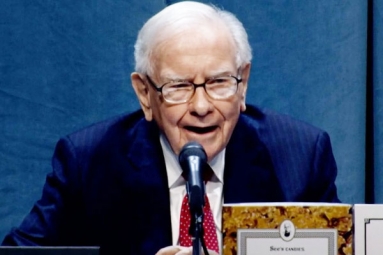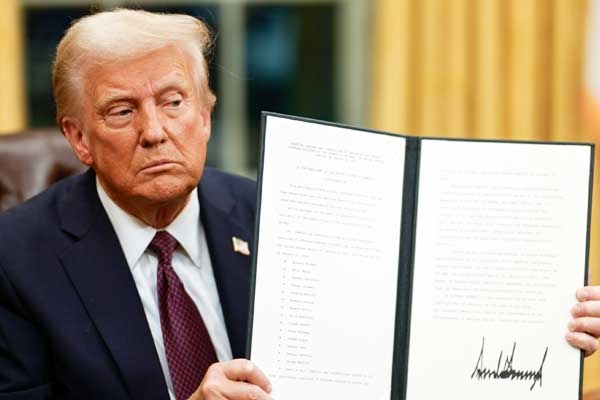
(Image source from: x.com/WhiteHouse)
An executive order from US President Donald Trump that seeks to eliminate birthright citizenship for the children of temporary visa holders has caught immigrant communities, particularly Indians, by surprise. Presently paused due to a legal challenge, this directive has left many Indian families, especially those expecting children soon, in a state of uncertainty. The ramifications for Indian professionals holding H-1B visas are significant. Many believed their children born in the United States would automatically gain citizenship, but this order jeopardizes that assumption. “This directly affects us,” said Akshay Pise, an Indian engineer residing in San Jose, California, whose wife, Neha Satpute, is due to give birth this month. “If this order is enacted, we are unsure what the outcome will be—it’s unfamiliar ground,” he expressed to BBC. As the couple's delivery date nears, they briefly contemplated an early labor induction but ultimately chose against it. “I want the natural process to unfold,” remarked Ms. Satpute. Mr. Pise emphasized, “My main focus is on ensuring a safe delivery and my wife’s well-being. Citizenship is secondary.”
The anxiety surrounding the order has made headlines, with some parents opting for premature C-sections in hopes of guaranteeing their child’s US citizenship. However, Satheesh Kathula, the president of the American Association of Physicians of Indian Origin (AAPI), counseled against such actions. “Given the stringent medical regulations here, I strongly advise against early C-sections solely for the sake of citizenship,” he stated. US resident Priyanshi Jajoo, who is expecting in April, voiced her concerns to BBC: “Do we need to reach out to the Indian consulate for a passport? What visa category applies? There is a lack of clear guidance.” Cyrus Mehta, an immigration lawyer based in New York, noted that “there is no provision in US law that grants non-immigrant status to those born here.” Without the promise of birthright citizenship, the future of H-1B holders’ children remains legally precarious. Ms. Satpute conveyed that the ambiguity surrounding this situation is distressing. “Pregnancy is already a stressful time, and we thought that after living here for ten years, things would ease up—then this happens on top of everything else.” Her husband pointed out their status as legal, tax-paying immigrants, insisting that their baby deserves US citizenship. “It has been the law, hasn’t it?” he remarked.
Indians represent the second-largest immigrant community in the United States and would be particularly impacted by this order. More than five million individuals hold non-immigrant visas, and if this new regulation takes effect, their US-born children would not acquire citizenship. “Indians are dealing with the most extensive green card backlog of any nationality,” stated immigration policy expert Sneha Puri. Current regulations restrict green cards to 7 percent per country, and since Indians receive 72 percent of H-1B visas annually, the backlog has escalated to 1.1 million. David Bier, immigration director at the Cato Institute, cautioned that “New Indian applicants might have to wait lifetimes, with approximately 400,000 likely passing away before receiving a green card.” The executive order will also have implications for undocumented immigrants, removing birthright citizenship for their US-born children, who once had the ability to sponsor their parents for a green card at the age of 21. Estimates on the number of undocumented Indians differ—Pew Research suggests about 725,000, while the Migration Policy Institute estimates around 375,000. For those Indians holding H-1B or O visas, the primary worry revolves around the future of their children.



